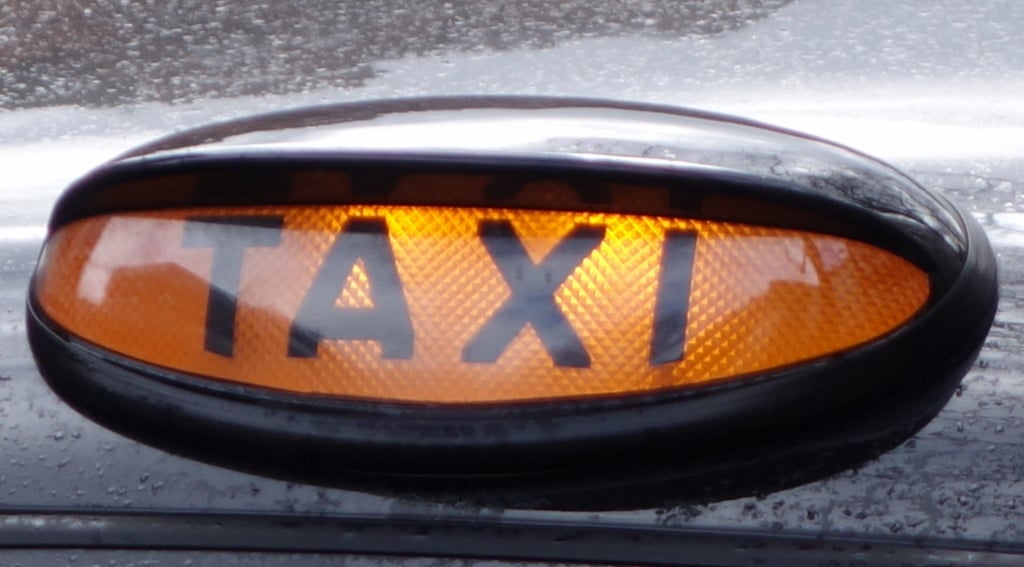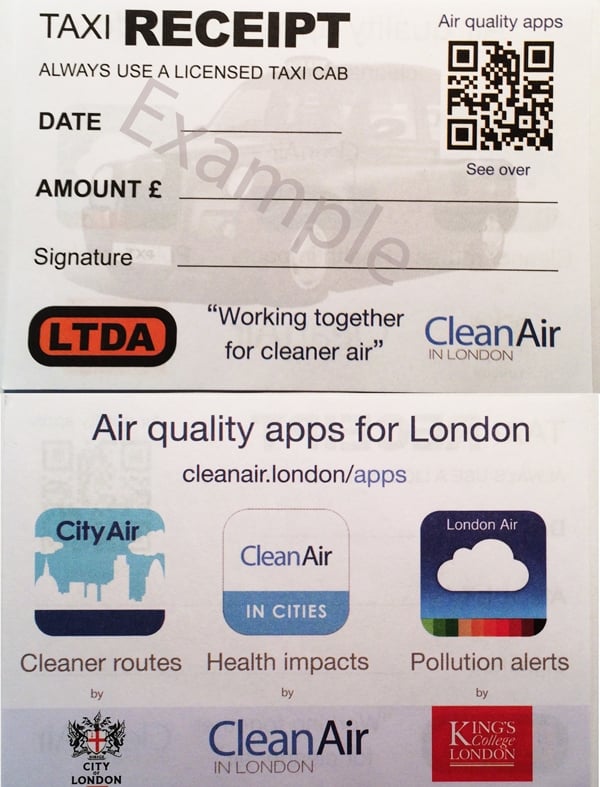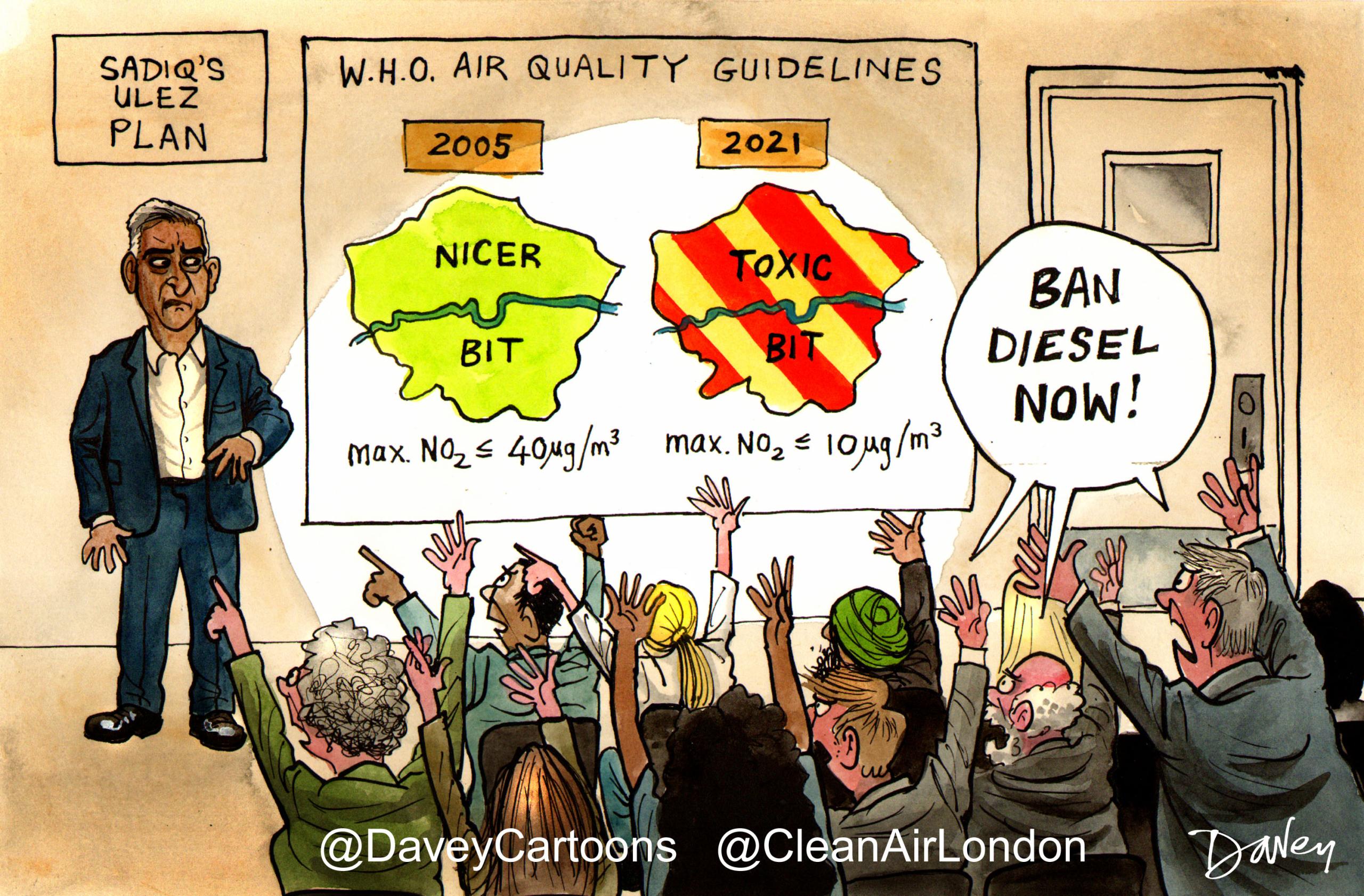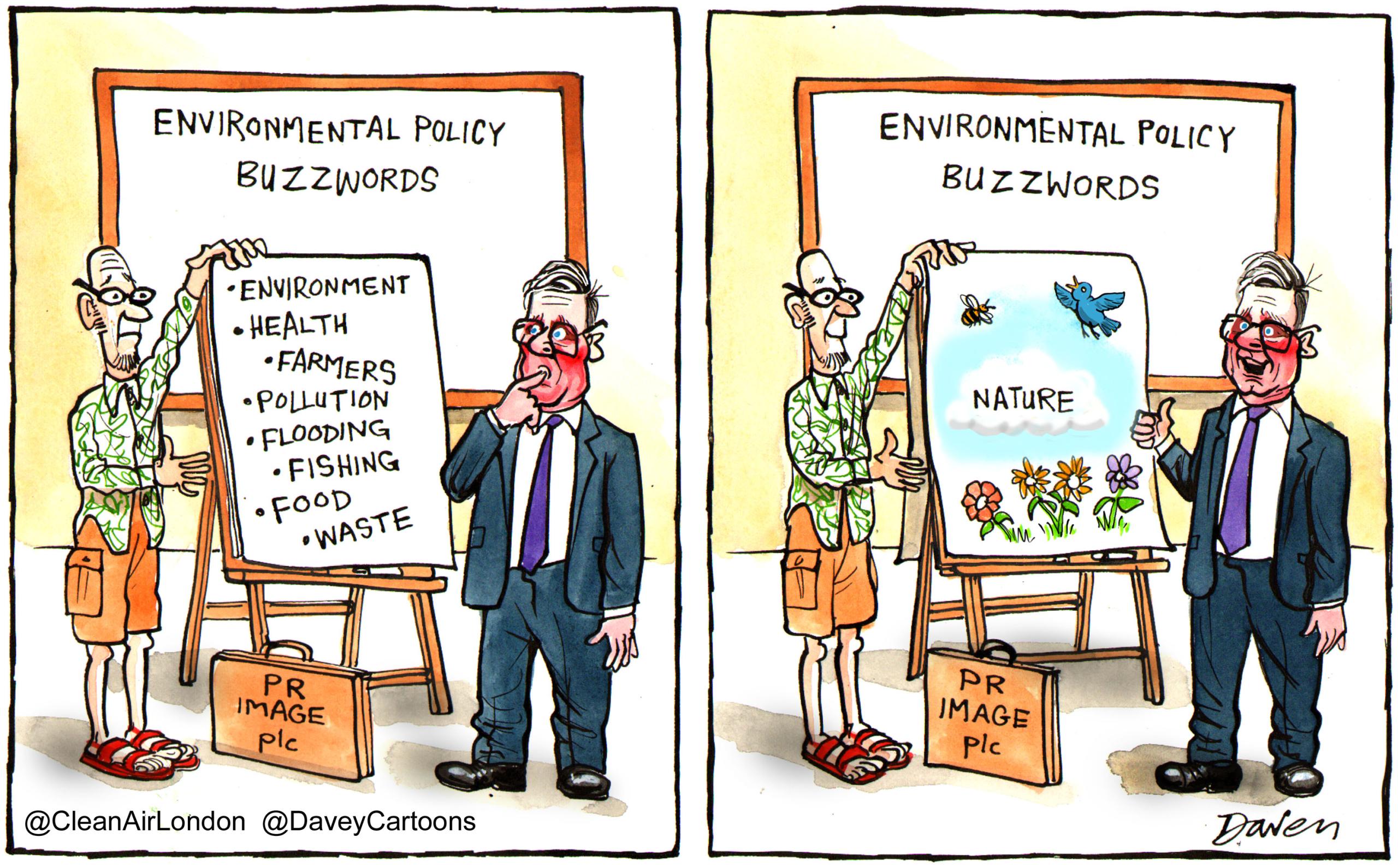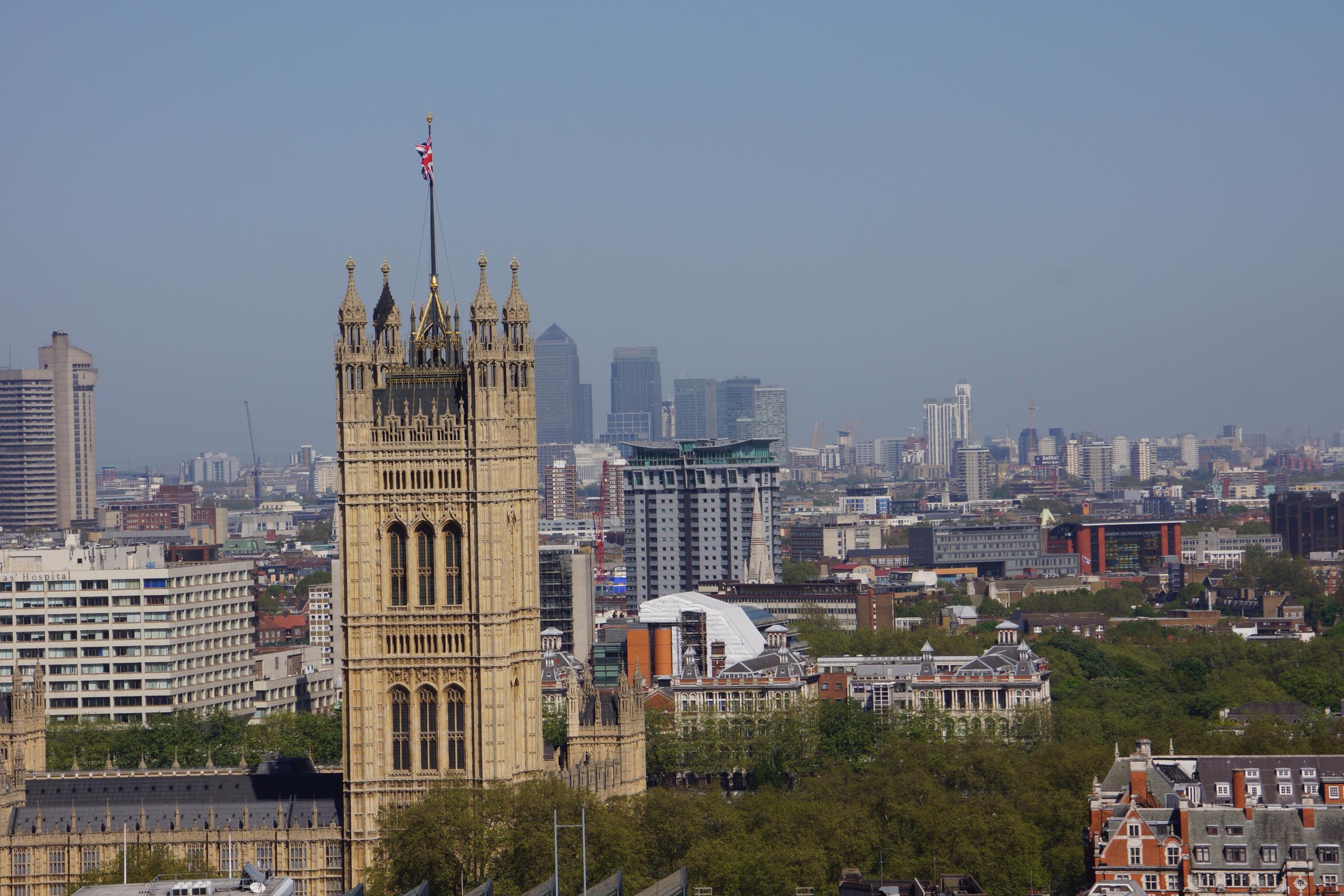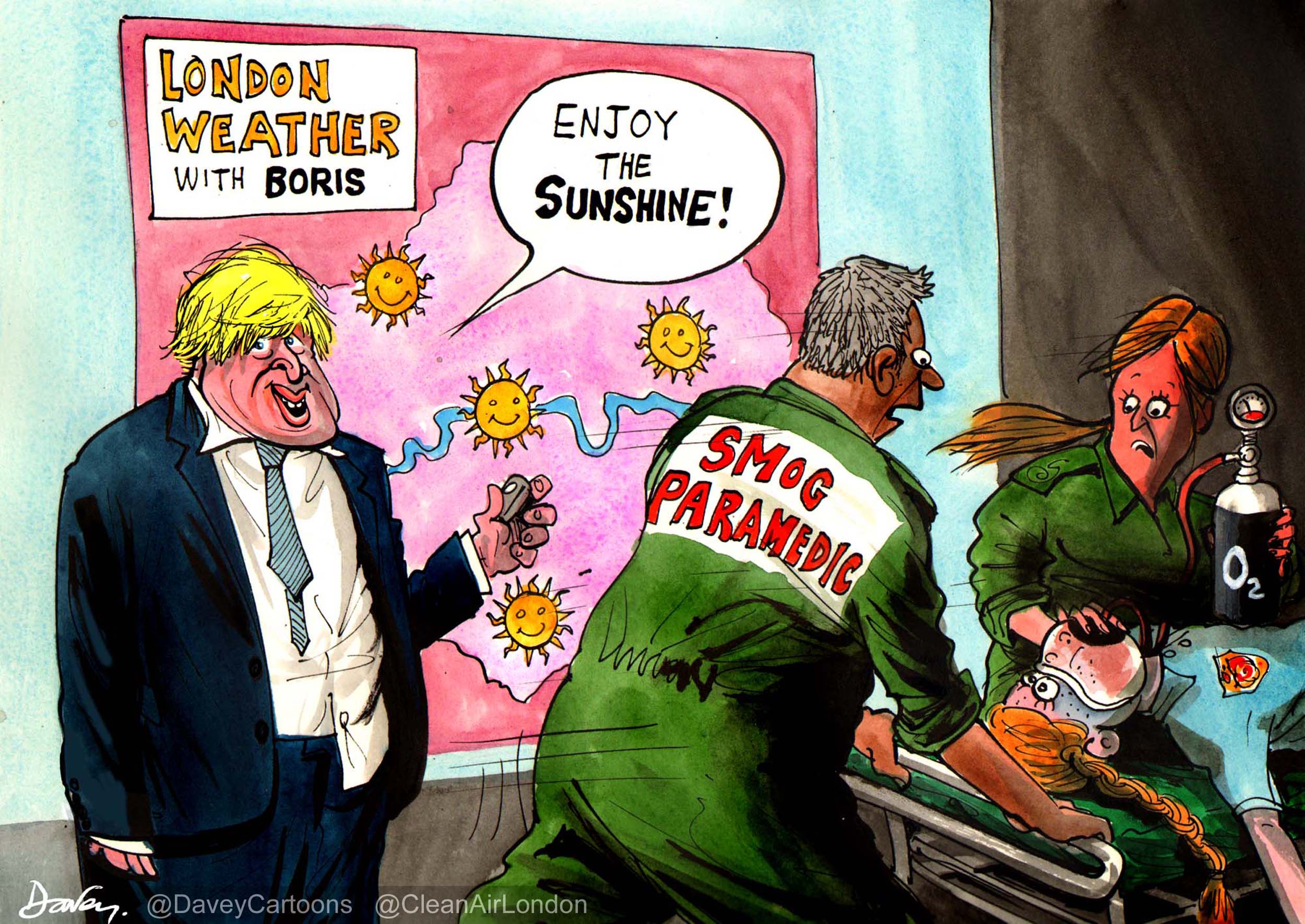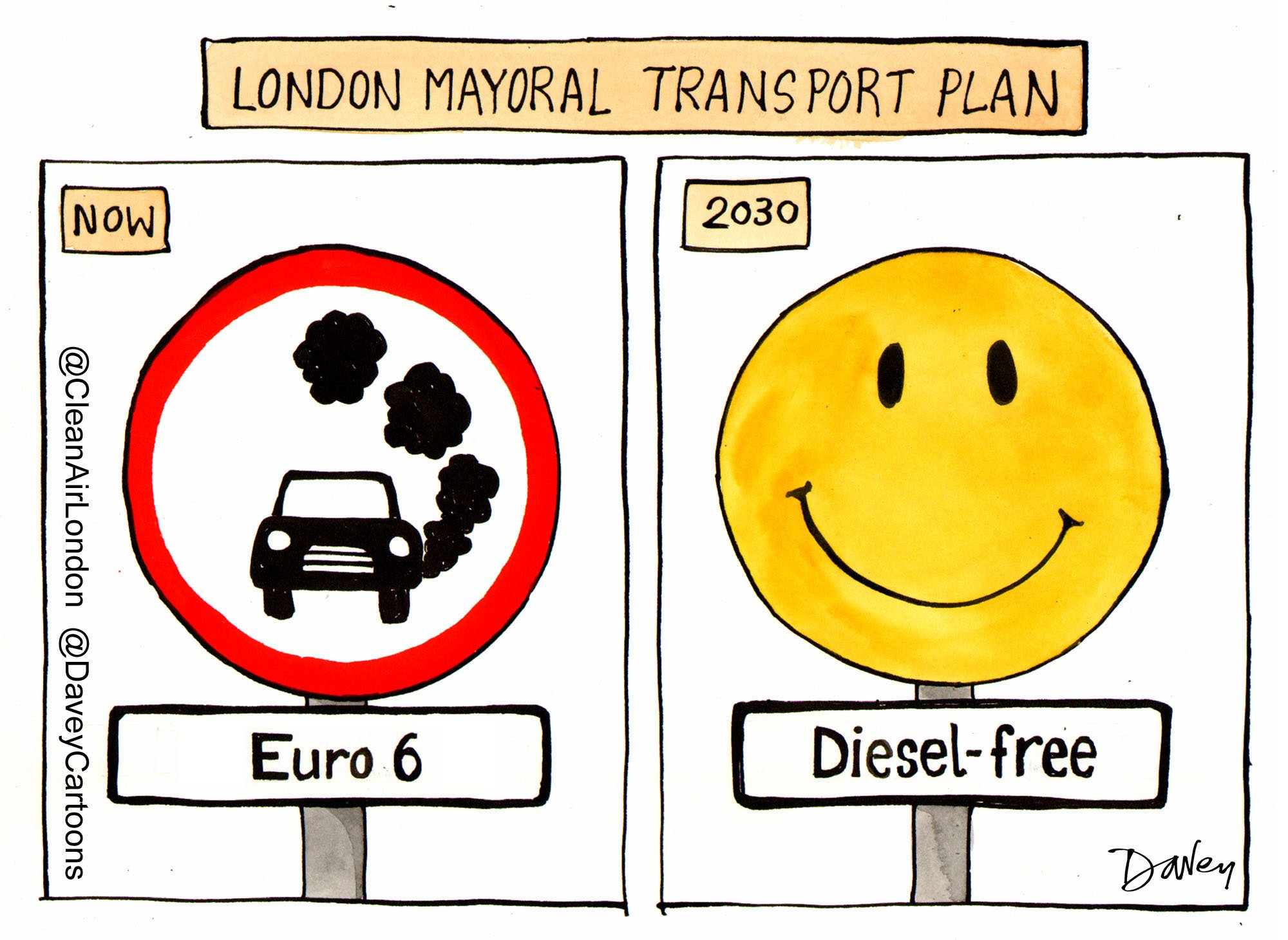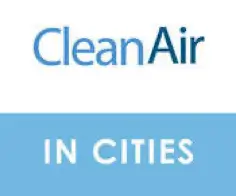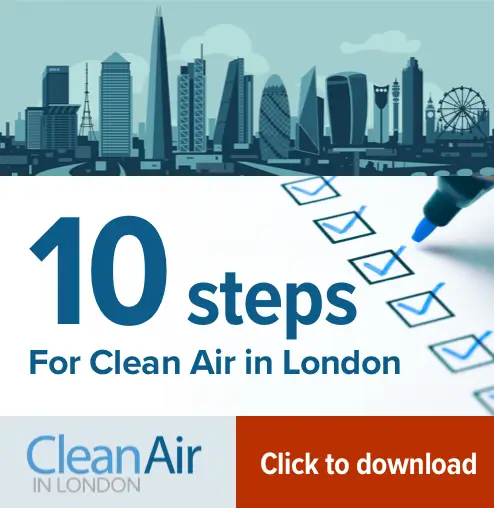The Licensed Taxi Drivers Association (LTDA) and Clean Air in London (CAL) invite the Mayor to commit to an ‘Eight point transformation package’ for the taxi and private hire industry in London for the benefit of current and future generations of Londoners.
The ‘Eight point transformation package’ needed from the Mayor of London:
- Require electric or plug-in petrol electric hybrids with a minimum daily range of 40 miles for all newly licensed taxis by no later than 1 January 2018. Consider tyre and brake wear standards.
- Require electric or plug-in petrol electric hybrids with a minimum daily range of 40 miles for all newly licensed private hire vehicles (PHVs) with immediate effect (because many such vehicles are available to purchase today). Consider tyre and brake wear standards.
- Establish a network of 500 rapid charge points in Greater London by no later than 1 January 2018 for the sole use of taxis with a geographic focus on inner London and air pollution hotspots to encourage visits to them. These must offer at least an 80% charge within 30-40 minutes at modest or no cost to drivers i.e. not two hours. If this number proves more than necessary for the taxi industry after 12 or 24 months some might then be made available to the general public.
- Scrap the 15 year and proposed 10 year age limit requirements on newly licensed taxis with immediate effect.
- Scrap the 25 foot turning circle requirement from the ‘Conditions of fitness’ for taxis with immediate effect. Keep the accessibility requirement and other Public Carriage Office requirements. Confirm that no state aid hurdles restrict funding below.
- Establish a fund totalling £150 million offering with immediate effect one-off financial grants of the greater of £10,000 or 100% of the VAT due on the purchase price of a new taxi that meets the requirements above for each of first 15,000 fully compliant taxis purchased. This would be on top of the £5,000 government grant already available for electric vehicles (irrespective of the number of taxi providers).
- Undertake never to allow geo-fencing near air pollution monitors, which are used to warn people of smog episodes and report legal breaches, whereby taxis or PHV’s would switch from fossil fuel tailpipe emissions to electric mode near those locations.
- Deliver new Vehicle Excise Duty bands and Benefits-in-kind taxation, if necessary initially just for new and used taxis and PHVs, based on the total sum of real world tailpipe emissions (grams per kilometre) of carbon dioxide (CO2), fine particles (PM5) and nitrogen dioxide (NO2). These changes should be tax neutral overall. Exhaust emissions must be independently certified.
The ‘Eight point transformation package’ is not an a la carte menu from which the Mayor can pick and choose. The LTDA and CAL have agreed this list as a ‘total package’.
Quotes
Steve Mcnamara, General Secretary of the Licenced Taxi Drivers Association, said:
“London taxi drivers want to be able to purchase and drive, clean modern taxis. With the right incentives and by working with the trade Boris has the opportunity to ensure that London is the first city in the world to have a taxi fleet comprised exclusively of Zero Emission Capable vehicles.”
Simon Birkett, Founder and Director of Clean Air in London, said:
“After nearly seven years as Mayor, Boris Johnson can no longer blame others for the state of the taxi industry and the 30% of particle emissions he estimates it produces in central London.
“Few people outside the taxi industry realise that the Mayor’s strict Public Carriage Office requirements determine which vehicle(s) a taxi driver can buy and/or drive to do his or her job. Today, this means drivers must buy one of two large, relatively unaffordable diesel vehicles to compete against Private Hire Vehicles purchased at a fraction of that cost. The Mayor should turn an onerous obligation into a mechanism for transformation.
“Clean Air in London and the Licensed Taxi Drivers Association are therefore inviting the Mayor the deliver an ‘Eight point transformation package’ for the benefit of current and future generations of Londoners. The package would:
- guarantee service to customers;
- limit cost to customers;
- minimise environmental impacts;
- ensure the financial sustainability of industry participants; and
- manage industry change.
“We urge the Mayor to accept this package and put it in place before he leaves office. Candidates in the 2016 Mayor election must commit to keep and build on it.
“The ‘Eight point transformation package’ is deliverable, financially realistic and good for customers, taxi and PHV drivers and public health.”
ENDS
Notes
- Previous taxi industry publications from Clean Air in London
https://cleanair.london/sources/mayor-is-destroying-the-taxi-industry-in-london/
- Taxi emissions
- London Taxi Drivers Association (LTDA)
There are 24,000 taxi drivers in London; the LTDA is the biggest representative group in the trade with over 10,000 members.
More at: http://www.ltda.co.uk/
- Clean Air in London
Clean Air in London’s Mission is to achieve urgently and sustainably full compliance with WHO guidelines for air quality throughout London and elsewhere. It works closely with other campaign groups and a wider network of supporters and volunteers to identify and build understanding of the most important issues and encourage decisive action on them.
Clean Air in London’s immediate priority is to see that air quality laws are enforced rigorously in London in 2014 (and thereafter). Clean Air in London believes that if we comply fully with relevant laws Britain can show the world how to tackle successfully air quality, climate change and sustainability issues.
Clean Air in London is a not-for-profit organisation funded by donations, sponsors and other supporters. It is not a charity in part because a registered charity is not allowed to have political objectives or take part in political lobbying (other than in a generally educational sense). Clean Air in London may wish to participate in such activities.
More at: https://cleanair.london/
- Other links
http://clondoner92.blogspot.co.uk/2015/02/new-cost-for-individual-extra-200-new.html

